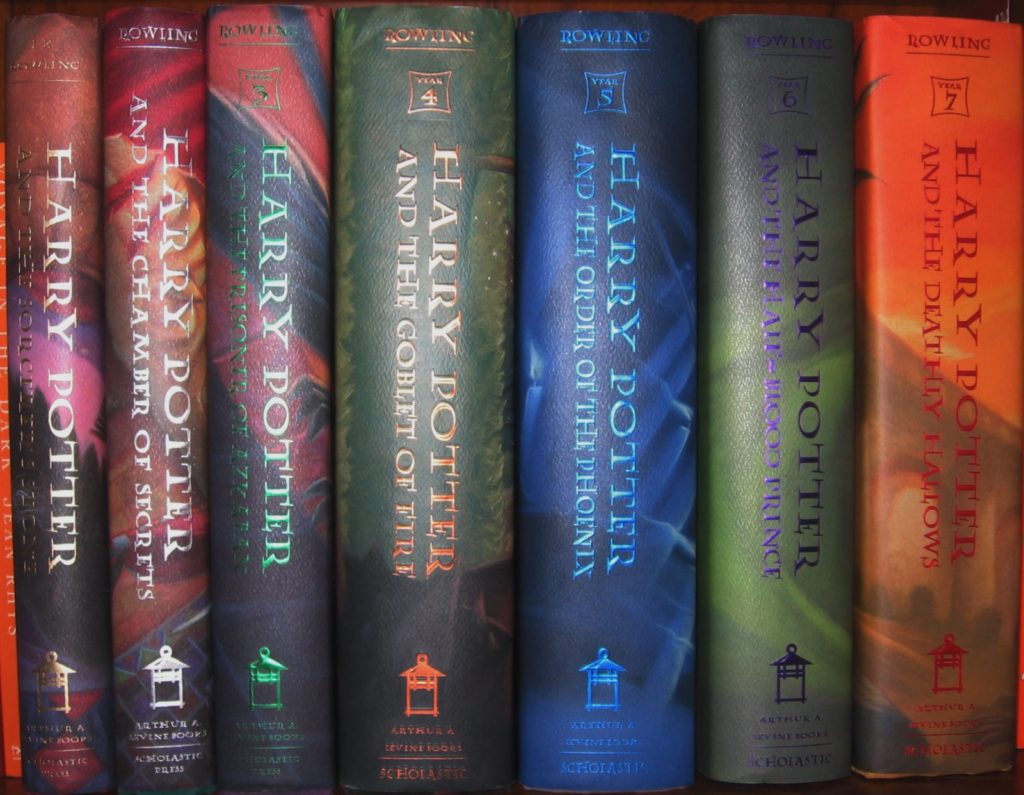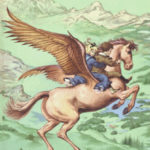March Madness And Quidditch
One of the best parts of J. K. Rowling’s Harry Potter novels is the worldbuilding. She created a wizardry world that felt as real, or more so, as the England in which it was set. How did she manage to create such a complex and believably Other place?
I think her basic method was simply to take the familiar—boarding schools, villages, government institutions, sports—and re-imagine them with magic as a key component. So what would a boarding school look like if magic were at the basis of the whole institution?
Since here in the US, this week marks the beginning of the college men’s basketball tournament for the top schools—fondly known as March Madness—it seems fitting that we look at the primary sport in the magical world of Harry Potter. Of course I’m talking about quidditch.
Ways Quidditch Is Similar To Basketball
 Like basketball, quidditch is a popular sport. The athletes that make a team automatically achieve higher status, and the stars earn the admiration of fans. Also like basketball, quidditch is played at schools, and by young people in “pick up” games.
Like basketball, quidditch is a popular sport. The athletes that make a team automatically achieve higher status, and the stars earn the admiration of fans. Also like basketball, quidditch is played at schools, and by young people in “pick up” games.
While much of the quidditch in Harry Potter is intramural—between teams from the same school—regional and even international contests occur. There’s also a professional league of quidditch players, and there’s a tournament that eventually pits the top two teams against each other for the championship.
Quidditch teams have a captain, and each member of the team has a distinct position, much like basketball. Some rules are similar, too. Both sports have fouls, and teams can be awarded penalty shots by a referee.
Another similarity: neither game allows players to used a magic wand against another player, the referee, or the ball. Finally, the key to winning in quidditch is scoring more points than your opponent.
Of course there are similarities with other sports as well, like soccer, rugby, and even dodgeball, but basketball might have the most commonalities.
Ways Quidditch Is Unique
The most obvious difference between quidditch and basketball is that players in the former must ride magical broomsticks that allow them to fly. The contests take place completely outside in the air. Thus, the best seats to watch a match are those in the “nose-bleed” section, which are considered the worst seats at a game of basketball.
 Quidditch differs from basketball in some ordinary ways, too. The game requires seven players on a side, not five. The captain of each team also operates as the coach, and only he may call a time out. Quidditch utilizes three balls, not one. Bludgers are designed to knock players off their brooms. The quaffle is the ball used to score points, much as a basketball is used to score by being shot through a hoop. Finally, the snitch, the smallest of the balls, is the key to quidditch. When a seeker of either team captures the snitch, the match is over.
Quidditch differs from basketball in some ordinary ways, too. The game requires seven players on a side, not five. The captain of each team also operates as the coach, and only he may call a time out. Quidditch utilizes three balls, not one. Bludgers are designed to knock players off their brooms. The quaffle is the ball used to score points, much as a basketball is used to score by being shot through a hoop. Finally, the snitch, the smallest of the balls, is the key to quidditch. When a seeker of either team captures the snitch, the match is over.
Basketball has one hoop on each end of the court. Quidditch has three rings at opposite ends of the pitch. Players in basketball may score two or three points for a made field goal. Quidditch players earn ten points for their team by throwing the quaffle through a ring.
 I could continue enumerating the ways basketball and quidditch are alike or different, but the key when it comes to J. K. Rowling’s worldbuilding is that she used something familiar—whether “football,” rugby, dodgeball, or basketball—and made something new, not simply by mixing the various sports, but by making magic a key component.
I could continue enumerating the ways basketball and quidditch are alike or different, but the key when it comes to J. K. Rowling’s worldbuilding is that she used something familiar—whether “football,” rugby, dodgeball, or basketball—and made something new, not simply by mixing the various sports, but by making magic a key component.
Magic is the basis of her world. Thus it became the basis of the elements in her world. Famous athletes have the equivalent of “baseball cards,” but these move and talk. Fans attending games wear team gear and buy team memorabilia, but these also have magical components. The announcer uses magic to enhance his voice. The “cheerleaders” use magic to create a routine in support of their team.
In other words, the key to Rowling’s worldbuilding is the consistency with which she infuses the different into the normal.
I don’t recall if she had a Final Four in her Quidditch World Cup tournament or brackets for fans to fill out, but I think everyone bet on the winner. Seems Ron ended up winning his bet but received magic money that disappeared.
So how about you? Have you filled out a March Madness bracket? (I won’t ask you if you made any bets!) Who’s your projected winner?
If you’re a writer, have you used sports in your story? Have you built your world by creating a new something based on the familiar? Care to share?








































